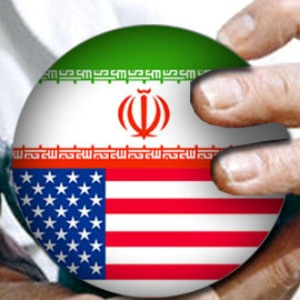No Need for Mediation
Iran’s regional status makes its needless of any mediation... Commentary by Asadollah At-hari
1s.jpg)
 One day after meeting his American counterpart, the Turkish Foreign Minister Ali Babacan said that his country would consider serving as a mediator between Iran and the United States, according to Reuters. Leaving Ankara for Tehran to attend Economic Cooperation Organization meeting, Babacan told the reporters that the current efforts for opening a dialogue are ‘an important opportunity’. Last month the Turkish PM Recep Tayyip Erdoğan had claimed that Iran has asked his country to help resolve its disputes with the United States. Asadollah At-hari has commented on Turkey’s role in Iran-US relations:
One day after meeting his American counterpart, the Turkish Foreign Minister Ali Babacan said that his country would consider serving as a mediator between Iran and the United States, according to Reuters. Leaving Ankara for Tehran to attend Economic Cooperation Organization meeting, Babacan told the reporters that the current efforts for opening a dialogue are ‘an important opportunity’. Last month the Turkish PM Recep Tayyip Erdoğan had claimed that Iran has asked his country to help resolve its disputes with the United States. Asadollah At-hari has commented on Turkey’s role in Iran-US relations:Erdoğan’s claim last month was immediately denied by Iranian officials. But why should US ever want Turkey to take the role of a mediator? That’s because of AKP’s close ties with Iran. AKP is an Islamist party feeling affinity and enjoying warm relations with the Islamic Republic. Iran-Turkey ties have expanded ties since the rise of AKP to power. So it wouldn’t be surprising at all if Turkey mediated between Iran and the United States.
Turks are even demanding for more, some role beyond a regional mediator. In fact, they believe they should become the hegemonic power of the region. Turkey currently occupies a significant regional position. During the recent years Turks have had several economic accomplishments. In previous years with every global crisis Turkey faced unrest, recession or inflation and resorted to World Bank and International Monetary Fund. But economic success shows that they deserve the role of a regional mediator.
As an example, we can point to Turkey’s role as the peace-broker between Israel and Syria, though after four rounds of negotiations Erdoğan’s reaction [in Davos] and Israel’s requests have stalled the process (of course in his meeting with Clinton, Babacan stated that Turkey is ready to renew Israel-Syria indirect talks). Meanwhile, Hillary Clinton has said that Obama will visit Turkey within about a month. This will probably be in line with his promise to talk to the Muslim world from a Muslim capital.
However, Iran and the United States need no mediators for talks. Iran enjoys such a regional status that it can enter direct negotiations with America. So we should think of the reason for talks about mediation.
Hints and remarks about Iran-US talks have become quite extensive these days. Seemingly, this will continue until the Iranian presidential elections. In Geneva, Hillary stated that Iran may be invited to an international conference on the future of Afghanistan, an offer Iran has said it is mulling. Afghanistan should be the starting point for both countries towards direct negotiations. However, Americans are reluctant to begin direct talks before the presidential elections since they believe it would not be advantageous. That’s why they are asking other countries to mediate until Iran knows its new president. In fact, Americans tend to enter talks with a group that enjoys strong social base.

